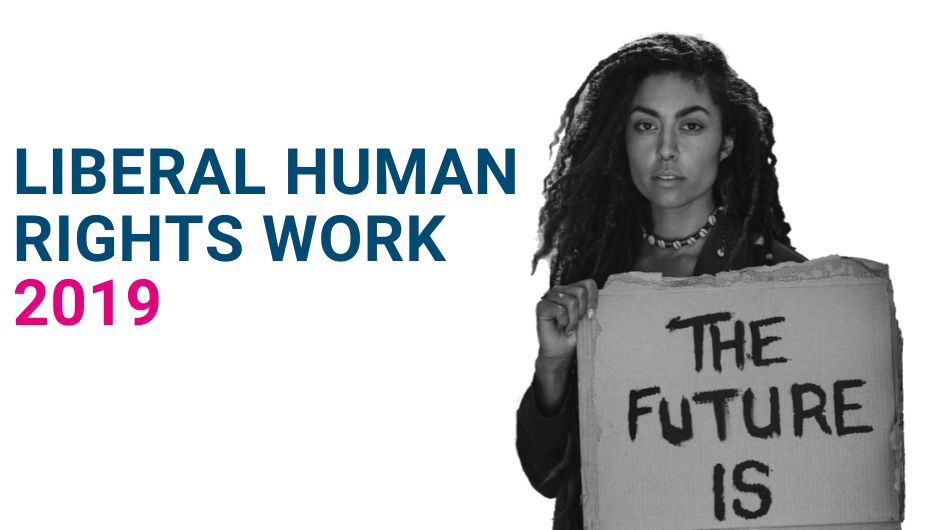Liberal Human Rights Work 2019

"HOW DO WE WISH TO LIVE IN THE FUTURE?"
This is the question behind the protests in Hong Kong, where different visions for society are fundamentally clashing. Young people are fighting for their freedom in China's special administrative zone. They are demanding civil and political human rights as well as the freedom to live as they wish – without being subject to the stipulations and surveillance of China. China’s influence is growing and with it the concern that this idea of human life and society, deprived of freedom and under state control, is also growing and that our universal human rights will be decimated.
Human rights are only universal if no one is excluded as a holder of rights. This includes civil and political human rights on equal footing with economic, social and cultural human rights. Guaranteeing and upholding human rights is the paramount obligation of states. Respecting human rights and demanding that they be respected, however, is the responsibility of us all.
In our human rights work we support and defend people who take action themselves personally or professionally for human rights – for people whose own human rights are threatened, who are not allowed to vote or to express their opinion or who do not have a voice. Because human rights are under threat around the globe, we as democrats must not be silent and look the other way when we have the possibility of taking action.

At its 60 offices around the world, employees of the Foundation, in cooperation with their partner organizations, develop a wide range of activities to improve the local human rights situation. This concerns freedom of expression and freedom of the press, the unhindered development of one's personality, access to information and free communication as well as taking action against discrimination and strengthening independent justice to combat despotism and oppression. In this report, you will find a few selected human rights projects run by the Foundation's country offices.
Greater media freedom and media literacy, for example, is being promoted by country offices in Zimbabwe, the Philippines and Myanmar to better arm people against disinformation which not only endangers social cohesion, but also the underlying values of democracy. Journalists are awarded the Raif Badawi Award and are further trained in our International Journalist and Media Dialogue Programme. In the end, their work is essential for freedom of expression, verifying disinformation and free opinion-making. With the Boris Nemzov Award the Foundation honors the work of human rights defenders.
A unique challenge in today's age is the respect of human rights online. Protecting data and privacy is the most important key to ensuring that "all people are free and equal". In Ukraine, we look at places where human rights are often violated: in prison regimes. Freedom and equality are the foundation of every human right. Human diversity is only possible if all people are accepted as they wish to live – also with respect to their sexual and gender identity. Where LGBTI persons are able to live in a free and equal manner, the human rights situation throughout the entire country is more stable. In many countries, the Foundation thus promotes people’s freedom of sexual and gender self-determination.
People need to know their rights. The right to human rights education is not only enshrined in international treaties, but it is also of paramount importance for people to be aware of their rights so that they can have them enforced. Economic freedom, one's own property and due diligence in the manufacturing of goods and products are all an important anchor for securing human rights long-term.
The contributions from different regions around the world will provide you with insights into the Foundation's liberal human rights work. I hope you enjoy reading this report.
Yours sincerely
Sabine Leutheusser-Schnarrenberger
Deputy Chair of the management board of the
Friedrich Naumann Foundation for Freedom and
former German Minister of Justice